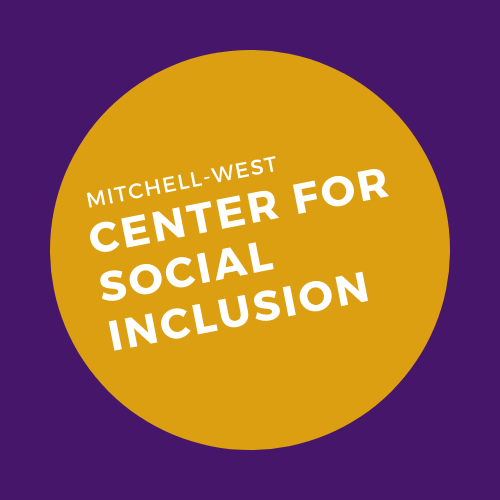Collaboration over Competition: Our Work Philosophy
Since beginning in 2019, we have centered our work philosophy around collaboration. As a new Center on campus, we were tasked with supporting education, research, community, and advocacy by working with different stakeholders on campus, in the Shoals, and across the state and region. Our goal has been to provide an accessible and inclusive space for students and faculty to share knowledge, collaborate on interdisciplinary projects, and build sustainable partnerships with organizations that are committed to addressing some of the most pressing social problems that we face today. This means working in partnership with existing campus offices and programs to continue to foster an environment committed to social engagement, empowerment, equity, and justice. This work cannot be done alone and we are fortunate to have a whole host of campus and community partners dedicated to this work.

Collaboration is the Name of the Game
Operationally defined, a “collaboration” is working together towards a common object or goal. In some environments, people feel that they need to compete over resources and this may not necessarily foster collaboration. Collaboration over competition centers communication, coordination, and commitment to maximize the utilization of (sometimes already limited) resources. In fact, many academic and educational service programs already rely on this exchange of resources to be successful. Collaborative efforts can enhance student learning outcomes, and these intentional partnerships across campus can help to minimize the overlap in programming and reduce competition for student engagement. This opens access to all students – creating a wide range of networking opportunities both on- and off- campus.

Building an Inclusive and Collaborative Organizational Environment
How do you build an inclusive and collaborative organizational environment? It starts with working together to address equity, inclusion, and justice in a holistic way. This requires the use of strategic steps that focus on working outside of our silos, emphasizing collaboration, and helping identify the gaps in programming. In your organization, you might start by asking yourself the following questions:
- Where are the silos?
- How do you bridge the gap between those areas?
- Who are your unlikely partners?
For leaders, this requires a type of leadership intelligence characterized by self-awareness, mutuality, and response agility that results in a high-impact and inclusive organizational culture for a global society. If you are interested in learning more about building an inclusive and collaborative organizational environment, check out our new inclusion in the workplace certificate program in partnership with UNA’s Center for Learning and Professional Development, which is under the leadership of Mary Marshall VanSant. There are six workshops that are a part of the certificate program and registration is now open.
Lessons Learned
We have learned several lessons over the last several years. Here are a few that we would like to share.
- Stakeholders can, and should be, identified intra-institutionally.
- Diversity, equity, and inclusion must be intentionally embedded within an institution’s core mission.
- Bridging gaps between organizational silos can be difficult work when people feel like they have to justify their existence within an organization.
- Strategic collaborations can increase effectiveness and efficiency in programming and lead to new initiatives.
- Partnerships enhance institutional capacity to meet the needs of students, and/or other partners.
Giving Thanks!

Bringing students, faculty, and staff together to create an inclusive environment is our mission, and we would like to take a moment to celebrate our collaborators here at the Mitchell-West Center for Social Inclusion:
Thank you all for being invested in creating sustainable, equitable, and inclusive events, trainings, and programs for our institution!


